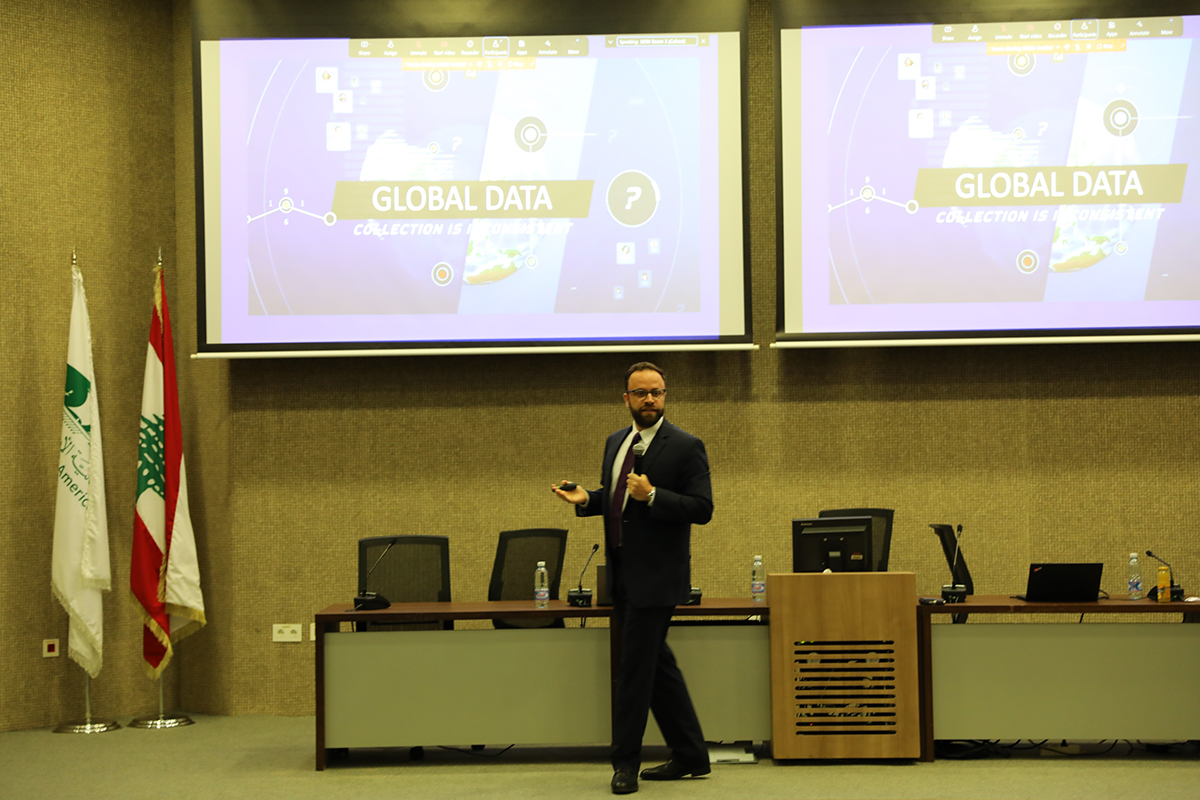Gaining the Edge in the Global Labor Market
Alumnus Rand Ghayad, head of Economics & Global Labor Markets at LinkedIn, shed light on the future of jobs in a talk hosted by LAU’s Global Affairs Service Center.
The job market has changed dramatically post-COVID. Some industries are holding out on hiring, while others are struggling to find talent. Job requirements themselves have evolved with new work trends, technology and upskilling. Navigating a labor market in flux at the best of times is challenging, even more so when a recession looms.
To shed light on the State of the Global Labor Market and the Future of Jobs, LAU’s Global Affairs Service Center held a talk by Head of Economics & Global Labor Markets at LinkedIn and Adjunct Professor at Harvard University Rand Ghayad (BS ’06) who provided insights collated by LinkedIn. The event on August 2 on the Byblos campus was hosted by the center’s Lead Director Suleiman Barada.
Before joining LinkedIn, Dr. Ghayad worked at the International Monetary Fund, advising governments and sovereign states on macroeconomic and labor market reforms, and served in various capacities at the Federal Reserve Bank, International Labor Organization, and Massachusetts Institute of Technology (MIT), Cambridge, Massachusetts. In 2014, Dr. Ghayad received LAU’s Alumni Achievement Award.
US unemployment and the labor force became his focal interest after he struggled to find a job as an MBA graduate from Boston University in 2007 during a recession. He decided to upskill – advice he could not overstate in his presentation – with a PhD in Applied Economics from Northeastern University, where he wrote his dissertation on Long-term Unemployment in the Great Recession.
Are we heading toward a global recession?
As you might expect, the answer is yes. GDP growth will slow down globally. However, the recession will be mild and short with better expectations of recovery than that experienced during the COVID-19 era. The US economy will be the first to be impacted, followed by countries that peg their currency to the US dollar.
Dr. Ghayad qualified it as a “rolling recession,” which does not hit the job market unilaterally but affects one industry or sector at a time. In the MENA region, for instance, the recession rolled from technology to housing.
As employment will be tight, employers and job seekers will need to revise their strategies. Some cracks are beginning to appear in the labor market, with one job opening for every 37 people on average in the MENA region compared to four to five job openings for the same number of job seekers in 2021.
Following an uptick in hiring in 2021 during the pandemic, there has been a dip globally across all industries. Employers are holding back on jobs until the economic situation crystallizes. The hiring rate in Lebanon, for example, is down by 19 percent year-to-year.
Which industries should one target for employment?
While many industries are still struggling, others are more resilient, said Dr. Ghayad. Recovery from their post-pandemic to their pre-pandemic situation has varied for industries, with job marketing conditions slackening for some and tightening for others. Technology, for instance, has witnessed the largest hiring slowdown, whereas government hiring remains strong.
Jobs that are on the rise for new graduates with a bachelor’s are product management and consulting roles, followed by purchasing, human resources and business development. Industries that are attracting the greater number of new graduates are professional services –which includes software engineers, accountants and legal assistants – healthcare, manufacturing, financial services and technology, information and media in that order.
How can one gain or retain a competitive edge in a changing global market?
“Skills are the currency of the future,” noted Dr. Ghayad. According to LinkedIn data, he stated, members’ skillsets globally have changed by 25 percent since 2015, a number that will likely double by 2027. Even if one remains in the same job, the requirements for that job are changing, which makes upskilling essential for job security and remaining competitive.
Learning new skills will become more essential not only for job seekers but also employers, and industries struggling to find talent would do well to adopt a skills-first approach to hiring, where ability supersedes job history or qualifications. On average, added Dr. Ghayad, a job seeker should acquire three new skills between now and 2025.
To make a degree more valuable, universities should recalibrate their curricula to incorporate foundational or soft skills that graduates will need in the future job market. In that regard, experiential learning is essential in equipping students with skills that are applicable from day one on the job.
